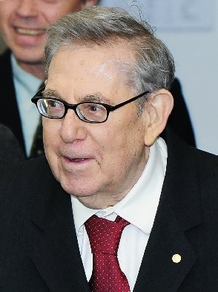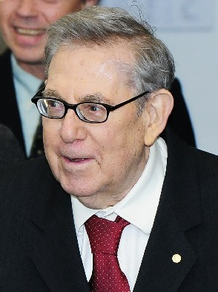Paul J. Crutzen becomes honorary member of the National Academy of Sciences Leopoldina
On 16 December 2014 the Chemistry Nobel laureate was awarded the honorary membership in the Leopoldina in Halle (Saale), Germany.
"We are delighted about the honorary membership of the Leopoldina for Paul Crutzen. He continues to be a highly active and important member of our institute, "says Ulrich Pöschl, Managing Director of the Max Planck Institute for Chemistry. "With scientific curiosity, ingenuity and wisdom he has contributed substantially to preventing the destruction of the ozone layer and to avoiding a nuclear winter."

For the current geological epoch where humankind strongly influences the earth and climate not only regionally but also on a global level, Paul J. Crutzen established the term Anthropocene. "The consideration of the Anthropocene as a geological era emphazises the great extent to which man can not only harm the environment destructively but may also shape it constructively. This extends far beyond the current climate debate and will help focusing it into a constructive way forward," says Pöschl.
Paul J. Crutzen was awarded the Nobel Prize in Chemistry in 1995 together with Mario J. Molina and F. Sherwood Rowland for research in the field of atmospheric ozone. In 1980, Paul Crutzen became Director at the Max Planck Institute for Chemistry in Mainz, where he led the Atmospheric Chemistry Department for twenty years.
The honorary membership is the highest award of the Academy of Sciences and is connected to an advisory vote in the Senate of the Academy. Crutzen is a member of the Leopoldina in the Earth Sciences section since 1992.
